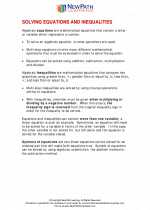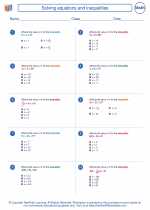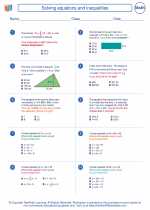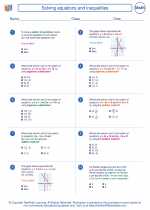Forecasting
Forecasting is the process of making predictions about the future based on past and present data. In the field of mathematics and statistics, forecasting is a widely used technique in various areas such as finance, economics, business, and weather forecasting.
Types of Forecasting
There are several types of forecasting methods, including:
- Qualitative methods: These methods are based on expert opinions, market research, and historical analogies. They are useful when historical data is limited or unavailable.
- Time series analysis: This method involves analyzing past data to make predictions about future values of a variable. It is commonly used in financial forecasting and economic analysis.
- Causal models: These models establish cause-and-effect relationships between variables to make predictions. They are often used in business forecasting.
- Simulation: Simulation forecasting involves creating a model of a system and running different scenarios to predict future outcomes.
Key Concepts in Forecasting
When studying forecasting, it's important to understand the following key concepts:
- Trend: A long-term movement in data that shows a general direction, such as an increasing or decreasing pattern.
- Seasonality: Regular patterns that occur at specific intervals, such as weekly, monthly, or yearly cycles.
- Forecast Error: The difference between the predicted value and the actual value. Common measures of forecast error include mean absolute error (MAE) and root mean square error (RMSE).
- Accuracy and Precision: Accuracy refers to how close a forecast is to the actual value, while precision refers to the consistency of the forecasts.
Study Guide for Forecasting
Here are some key steps to follow when studying forecasting:
- Understand the basics of statistical analysis and time series data.
- Learn about different forecasting methods and their applications in real-world scenarios.
- Practice using software tools such as Excel, R, or Python for implementing forecasting models.
- Explore case studies and examples of successful forecasting applications in various industries.
- Understand the importance of evaluating forecast accuracy and making adjustments to improve future predictions.
By mastering the concepts and techniques of forecasting, you can make informed predictions and decisions based on data, leading to better outcomes in various fields.
.◂Math Worksheets and Study Guides Eighth Grade. Solving equations and inequalities
Study Guide Solving equations and inequalities
Solving equations and inequalities  Worksheet/Answer key
Worksheet/Answer key Solving equations and inequalities
Solving equations and inequalities  Worksheet/Answer key
Worksheet/Answer key Solving equations and inequalities
Solving equations and inequalities  Worksheet/Answer key
Worksheet/Answer key Solving equations and inequalities
Solving equations and inequalities 

 Worksheet/Answer key
Worksheet/Answer key
 Worksheet/Answer key
Worksheet/Answer key
 Worksheet/Answer key
Worksheet/Answer key

The resources above cover the following skills:
Algebra (NCTM)
Represent and analyze mathematical situations and structures using algebraic symbols.
Develop an initial conceptual understanding of different uses of variables.